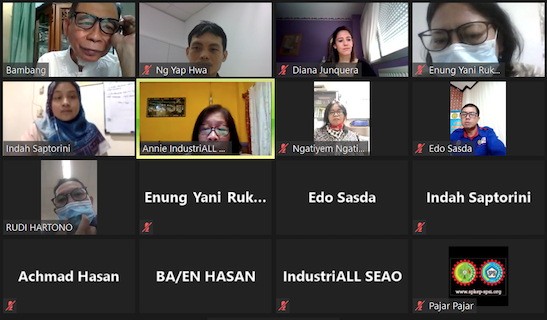Read this article in:
English
1 July, 2020Indonesian oil and gas workers are fighting precarious work through legal action and an organizing drive, amid the coronavirus outbreak and economic downturn.
Following on the Indonesia oil and gas union network meeting in 2019, fifteen union leaders from Chemical, Energy and Mines Workers Union (CEMWU SPSI) and Federation of Chemical, Energy, Mining, Oil and Gas Workers’ Union (FSP KEP) met on 25 June to take stock of the approved action plan.
Both unions’ organizing drives have been severely impeded by the pandemic. Jakarta was in a state of emergency for more than a month and large-scale social distancing rules have been imposed nation-wide.
CEMWU members at PT CNOOC, the contract companies of national oil company Pertamina, are fighting an uphill legal battle to convert the status of non-permanent workers to permanent workers. Currently, the workers are waiting for a hearing at the Supreme Court, and the case has been going on for three years.
“Precarious work is a big problem in this sector,” says Edo Sasda from CEMWU. “We urge PT CNOOC to negotiate with CEMWU and take on all of our members as permanent workers.
Bambang Surjono, general secretary of FSP KEP, agrees with Sasda and says that it is common that 90 per cent of workers at oil companies are contract workers, leaving only 10 per cent permanent staff.
IndustriALL energy director Diana Junquera says :
“This phenomenon is widespread all over the world; 80 to 90 per cent of oil and gas workers are precarious workers. But the good thing in Indonesia is that contract workers can be organized into union.
Globally, many contract workers have been terminated due to the declining demand for oil. Now is a good opportunity to extend our solidarity to contract workers in the sector and organize them.”
IndustriALL regional secretary Annie Adviento emphasizes that giant oil companies are making billions of profits each year, and yet are reluctant to share profits with the workers.
“The Covid-19 pandemic has exacerbated inequalities. Trade unions must continue its works and fight for workers’ rights, global solidarity is even more important today.”
